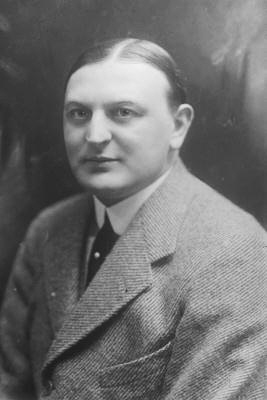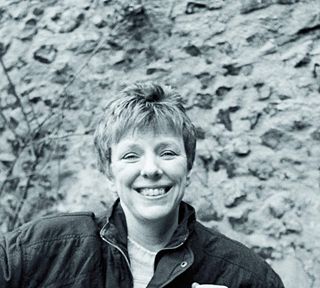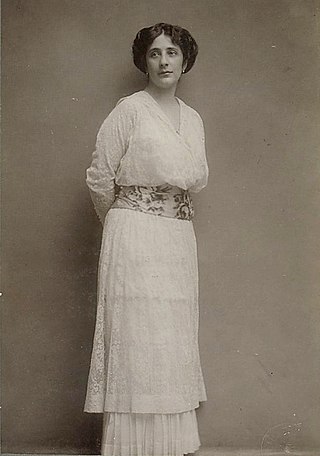Related Research Articles

Ralph Benatzky, born in Mährisch Budwitz as Rudolph Franz [František] Josef Benatzky, was an Austrian composer of Moravian origin. He composed operas and operettas, such as Casanova (1928), Die drei Musketiere (1929), Im weißen Rössl (1930) and Meine Schwester und ich (1930). He died in Zürich, Switzerland.

Johann Heinrich "Hans" Hinkel was a journalist, Nazi Party official and politician in Nazi Germany. He mainly worked in the Reich Chamber of Culture and the Reich Ministry of Propaganda. He was involved in executing the policy of excluding Jews from German cultural life, and headed the Ministry's film division. He was also an SS-Gruppenführer, and was imprisoned in Poland for several years after the end of the Second World War.
Friedrich Blume was professor of musicology at the University of Kiel from 1938 to 1958. He was a student in Munich, Berlin and Leipzig, and taught in the last two of these for some years before being called to the chair in Kiel. His early studies were on Lutheran church music, including several books on J.S. Bach, but broadened his interests considerably later. Among his prominent works were chief editor of the collected Praetorius edition, and he also edited the important Eulenburg scores of the major Mozart Piano Concertos. From 1949 he was involved in the planning and writing of Die Musik in Geschichte und Gegenwart.
Israelitisches Familienblatt was a Jewish weekly newspaper, directed at Jewish readers of all religious alignments. Max Lessmann and Leo Lessmann founded the Familienblatt, which was published by the printing and publishing house Buchdruckerei und Verlagsanstalt Max Lessmann first in Hamburg, and then in Berlin (1935–1938). The Familienblatt was the only newspaper dealing with majorly Jewish issues in Germany which was run by a private business not aligned to a Jewish organisation of any kind. The editorial and printing offices were located in ABC-Straße 57 in Hamburg. The Hamburg agglomeration, consisting of the Free and Hanseatic City of Hamburg, the Danish-Holsteinian cities of Altona and Wandsbek as well as the Hanoverian city of Harburg upon Elbe, had been an important Jewish centre in Europe and in number with c. 9,000 persons, the biggest in Germany. Only by the first third of the 19th century did Berlin, Prussia's capital, overtake with Jews migrating from the former Polish provinces, which Prussia annexed in the Polish Partitions. Originally directed to readers in Hamburg's metropolitan area the Familienblatt gained more and more readers and spread nationwide in Germany. Israelitisches Familienblatt was prohibited to appear any further after the November Pogroms on 9–10 November 1938.
Herbert Gerigk was a German musicologist, notable for his co-authoring of the Nazi Lexicon of Jews in Music.
Chaim "Efim" Schachmeister was a German violinist and bandleader. He also recorded under the pseudonyms Sascha Elmo and Joan Florescu.

Die Musik was a German music magazine established in 1901 by Bernhard Schuster (1870–1934). It was published semimonthly by Schuster & Loeffler from Berlin and Leipzig. Schuster was its editor-in-chief from inception until July 1933, when the publication was taken over by the Third Reich. The final publication, under the name Die Musik, was February 1943.

James William Davison was an English journalist, known as the music critic of The Times.

Samuel Achillos Lieberson was a physician, award-winning composer and professor of music theory.

Erich Schenk was an Austrian musicologist and music historian.

Eva-Ruth Weissweiler is a German writer, musicologist and non fiction writer.
Wolfgang Boetticher was a German musicologist and longtime lecturer at the University of Göttingen.

Wilhelm Guttmann was a German composer. His work was part of the music event in the art competition at the 1932 Summer Olympics.

Frieder Weissmann was a German conductor and composer.
Andreas Weißgerber, also known as Chanosch Ben Mosche Weißgerber, was an Austrian-Hungarian violinist.
Manfred Lewandowski was a German-US-American cantor, classical baritone and composer.
Walter Bransen also Walther Bransen was a German physician, violinist and composer. His pseudonyms were Will Rollins, Sam Fox and Karl Wetter.

Bella Paalen, real name Isabella Pollak was an Austrian-American operatic soprano of Hungarian origin. She was engaged for 31 years at the k.-k. Hofoper in Vienna, later the State Opera, was appointed Kammersängerin there in 1933 and had to leave the country after the Anschluss because of her Jewish origins.

Rudolf Deman was an Austrian-German violinist and academic teacher. He was concertmaster of Orchestra of the Berlin State Opera from 1918 to 1930 and first violinist of the Deman String Quartet which made several recordings.

Emy Freifrau von Stetten was a German oratorio, opera and Lied soprano and music teacher at the Frankfurt University of Music and Performing Arts.
References
- ↑ Kater, Michael H. (1992). Different Drummers: Jazz in the Culture of Nazi Germany. Oxford University Press. p. 127.
- ↑ "Buchstabe S, Liste der auszusondernden Literatur. Herausgegeben von der Deutschen Verwaltung für Volksbildung in der sowjetischen Besatzungszone. Vorläufige Ausgabe nach dem Stand vom 1. April 1946 (Berlin: Zentralverlag, 1946)".